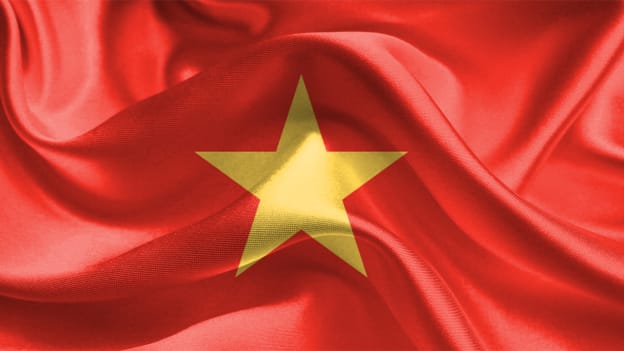Rising Vietnam: Here’s why Vietnam is the next hot spot for job seekers

The developing economies are the new hot-spot for everything in the world. The power of a young population and natural resources that enable them to become partly self-sustaining is taking over the superpowers of developed nations. After India and China, Vietnam seems to be the next most promising Asian country in the world. With a fabulous GDP growth prediction of 6-7% and safe inflation levels, the Vietnamese economy will fly higher from its current point.
Political reforms levelled up the economy
The political environment in Vietnam is one of a kind. The Southeast Asian country has an authoritarian regime with one party electing all the key members in the system. However, Vietnam is now experimenting with single party democratization. If they can establish this, then this will be one of a kind political structure the world has ever seen. There’s also a sudden wave among the Vietnamese citizens to take control of their political rights along with their freedom to speech and participate in crucial decisions about the country. Along with democratization in politics, this country is also on the path of economic liberalization and government reforms in agriculture, food, textile, and tourism industries are yielding stellar results.
Middle Class – A strong backbone for Vietnam
With a population of 90 million, which majorly constitutes the middle class, it is one of the most active anchors that is driving the economic growth in Vietnam. This has led to a booming private sector and workplaces that are thriving with new opportunities. Equal income distribution is one of the not so widely-known yet most robust parameters of the Vietnamese economy. The cherry on the top is favourable demographics for existing and upcoming businesses in the marketplace. A strikingly low inflation rate that is below 4% is yet another feather in Vietnam’s impressive economy.
The increased flow of FDI
International integration and multinational trade liberalization have led to an impressive inflow of FDI. As a heavily dependent economy on trade foreign direct investment and multinational ties have helped Vietnam to make stellar progress with wealth and trade. One of the most significant benefits of foreign investment is an easy passage for foreign workers. As many foreign investors look for ease of doing business in a country and the skills and talent available to sustain the business, FDI has indirectly led to opening doors to expats and full-time foreign workers.
Work permits are loosening up
Vietnam was known for its strict and tangled work-permits. One of the repercussions of this was losing opportunities to get international players in Vietnam. However, the government is now changing its work-permit policies to welcome more expats and foreign businesses.
Expats who are transferred by their company and are employed in information technology, business, education, distribution, construction, health, environment, finance, transportation, tourism, and entertainment then the expat gets a stay and work permit as long as the company wants. The same rule applies to teachers working in international schools that come under the purview of foreign embassies. For teachers working with Vietnamese schools, permission from the Ministry of Education is all they need to stay in the country as long as their work demands. Among others who can avail similar benefits are interns working in Vietnamese companies, authorized volunteers from international NGOs, and experts supporting the implementation of Official Development Assistance projects. These exemptions are however valid for a maximum of two years unless and until specifically allowed or changed by the governing bodies.
Great infrastructure
Many expats are willing to shift to Vietnam. It is no longer looked upon as a poor country. Vietnam is now considered as one of the strongest economies on its way to revival among its Southeast Asian pals. The cities are booming with new and modern infrastructure with enhanced public transport. Cities of historical significance too are no longer just ruins. With tourism being one of the thriving businesses in Vietnam, these cities are reclaiming their lost charm again.
Some challenges
Vietnam is now restructuring social security benefits for its citizens. However, the country still is falling short of extending these benefits to expats and foreign workers. With the government loosening up its work permits and foreign investment policies, the future looks brighter. Organizational structures are yet another challenge for expats and even for the younger crowd entering the Vietnamese workforce. Following robust organizational hierarchy, organizations in Vietnam still follow the grey hair rule where the people with the most number of experiences get to step up on the ladder. However, with so many positive changes, fundamental changes in the functioning of HR are not unlikely in the years to come.
Even though Vietnam is still recovering from US-Vietnam war losses and is trying to catch a strong foothold in international economic affairs, positive economic growth and adequate international support is making this country a hot-spot for anyone who is looking for new global opportunities for employment as well as setting up new businesses.

















